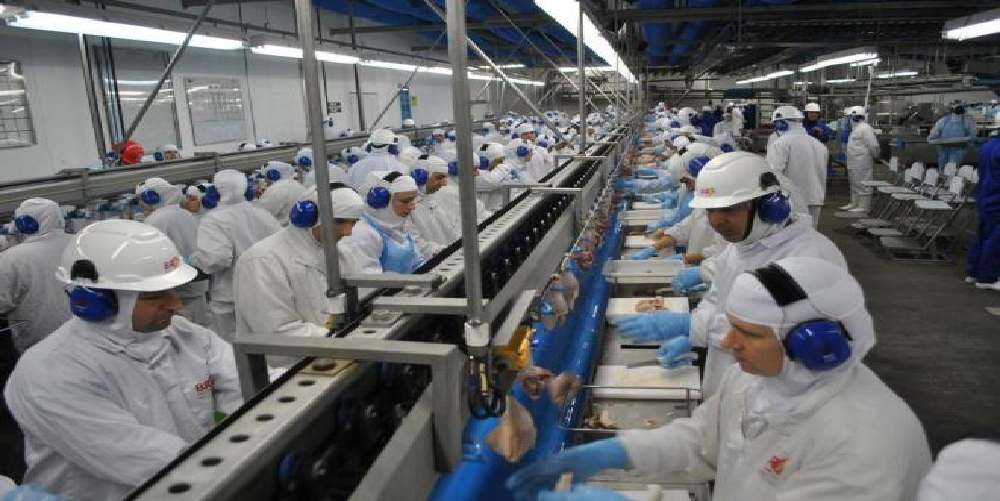
Protectionism suspected in Saudi Arabian embargo of Brazilian chicken
May, 10, 2021 Posted by andrew_lorimerWeek 202120
Saudi Arabia’s newest restriction against Brazilian chicken meat opened a deluge of speculation by exporters about the reasons to justify barring 11 slaughterhouses, responsible for more than 60% of shipments to the country. Some exporters adhere to the possibility that Saudis will claim that they have found salmonella in lots of the product imported from Brazil. “There is such a theory, but it is extra official. It is a suspicion held by the staff, but still without confirmation,” said a source who deals directly with importers. Faced with suspicions, Brazil’s agricultural attaché in Saudi Arabia issued a statement to the government reporting the suspicion of Brazilian exporters about Saudi motivations.
Among Brazilian industry executives, no one has any doubt that Saudi Arabia’s real motivations are protectionist. Since 2017, the country has been restricting access to Brazilian chicken and other regions to stimulate local production. Self-sufficiency in the supply of chicken meat is one of the goals of Vision 2030, the strategic plan 2030, the strategic plan of Prince Mohammad bin Salman.
“They were threatening, pressing for investment in production there. For me, this is the reason”, evaluated a senior executive. The timing of the Saudi barrier provides even more elements for protectionist motivations. Earlier this week, Almarai, one of Saudi Arabia’s largest chicken meat producers – and of which Saudi Agriculture Minister Abdulrahman Al Fadley was CEO – announced an investment of US$ 1.8 billion to double the country’s chicken. In the opinion of this executive, the Saudis only “found a technical way – and difficult to disprove – to retaliate”.
In Brasilia, the Saudi decision provoked irritation. “The Brazilian government received with surprise and dismay the decision by Saudi Arabia to suspend 11 poultry-exporting establishments for that market. There was no previous contact from the Saudi authorities, nor did any reasons or justifications to support the suspensions,” said a joint note from Itamaraty and the Ministry of Agriculture last Thursday.
Sources close to Brazilian exporters call for caution with information about salmonella. “We will wait for the report of the Saudis. What is circulating is not that salmonella was confirmed, but that this would be the reason,” said one of them. The salmonella theme requires care because detecting this is not always well understood by the public. Salmonella bacteria can cause intestinal infections, but their presence is not a problem in itself. When exposed for 14 seconds at a temperature of 70 ° C, the bacterium dies. Until a few years ago, the market practice was not to accept that the prevalence of the bacterium was greater than 20%. It is not clear whether the Saudis have reduced the limits to justify a technical barrier.
In any case, the blocking of 11 slaughterhouses is a shock. In 2020, the country accounted for 11.3% of Brazilian exports, only lagging behind China in importance. The Saudis spent US$ 684.3 million to import Brazilian chicken last year.
Among the companies, JBS was the hardest hit. Seara, a subsidiary of the company, was withdrawn from the Saudi market by having seven units blocked. The Rio Grande do Sul Vibra and Agroaraçá were also affected by the restrictions.
BRF, the market leader in the Middle East, maintained four authorized refrigerators and was not affected by the latest restrictions. In the past, however, the company has been hit hard by blocking units and a persistent embargo on its mega factory in Abu Dhabi, in the United Arab Emirates. In this context, BRF acquired a factory in Saudi Arabia in 2020, for US $ 8 million. In the previous year, it had also signed a memorandum of understanding with the Saudi Arabian Investment Authority (Sagia) to invest US $ 120 million in the country.
JBS reported “that it is in contact with the Saudi Food and Drug Authority (SFDA), the health authority of the Saudi Arabian government, to discuss and understand the reasons for blocking chicken exports to the country.”
Source: Valor Economico
-
Ports and Terminals
Feb, 28, 2024
0
Wozmax-class vessel arrives at Sepetiba Bay: largest bulk carrier to make it to its waters
-
Ports and Terminals
Apr, 27, 2023
0
Port of Suape partners with Embratel to test private 5G network for cargo tracking
-
Sugar and Ethanol
Jul, 03, 2023
0
Fenasucro & Agrocana 2023 to display solutions on clean energy transition
-
Shipping
Dec, 03, 2020
0
BR do Mar cabotage project postponed a week after deputies disagree on voting


